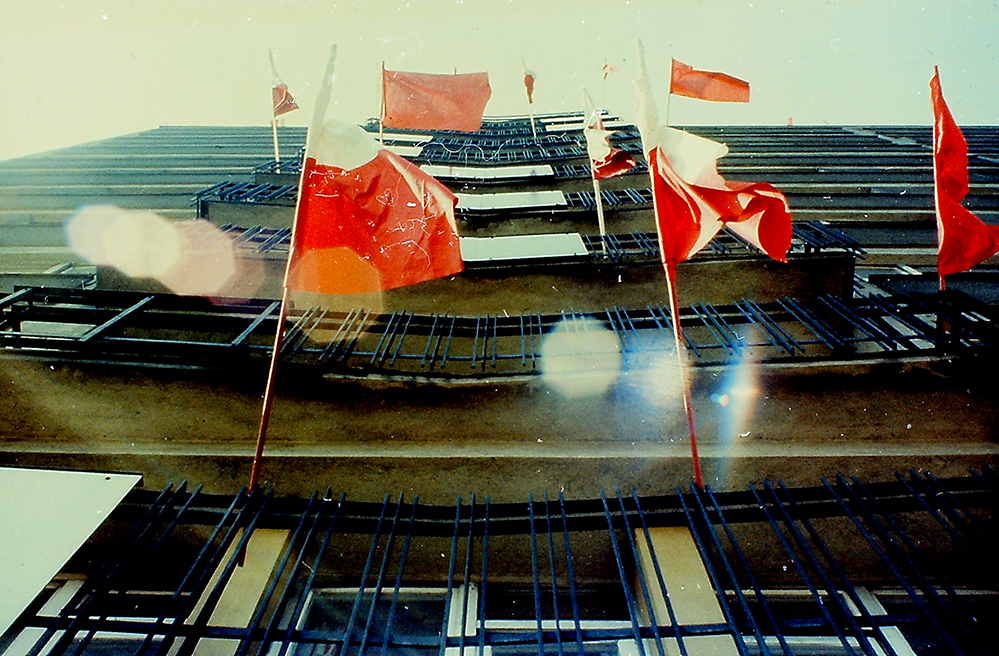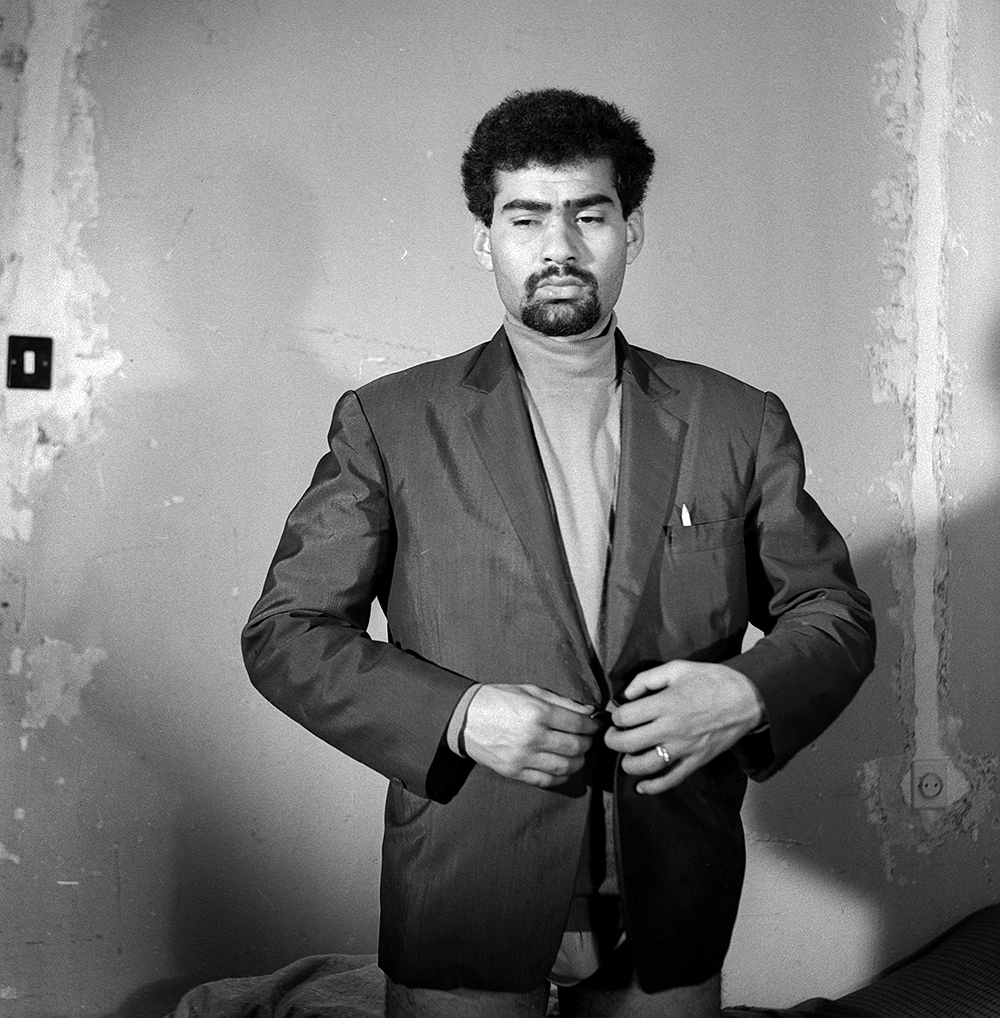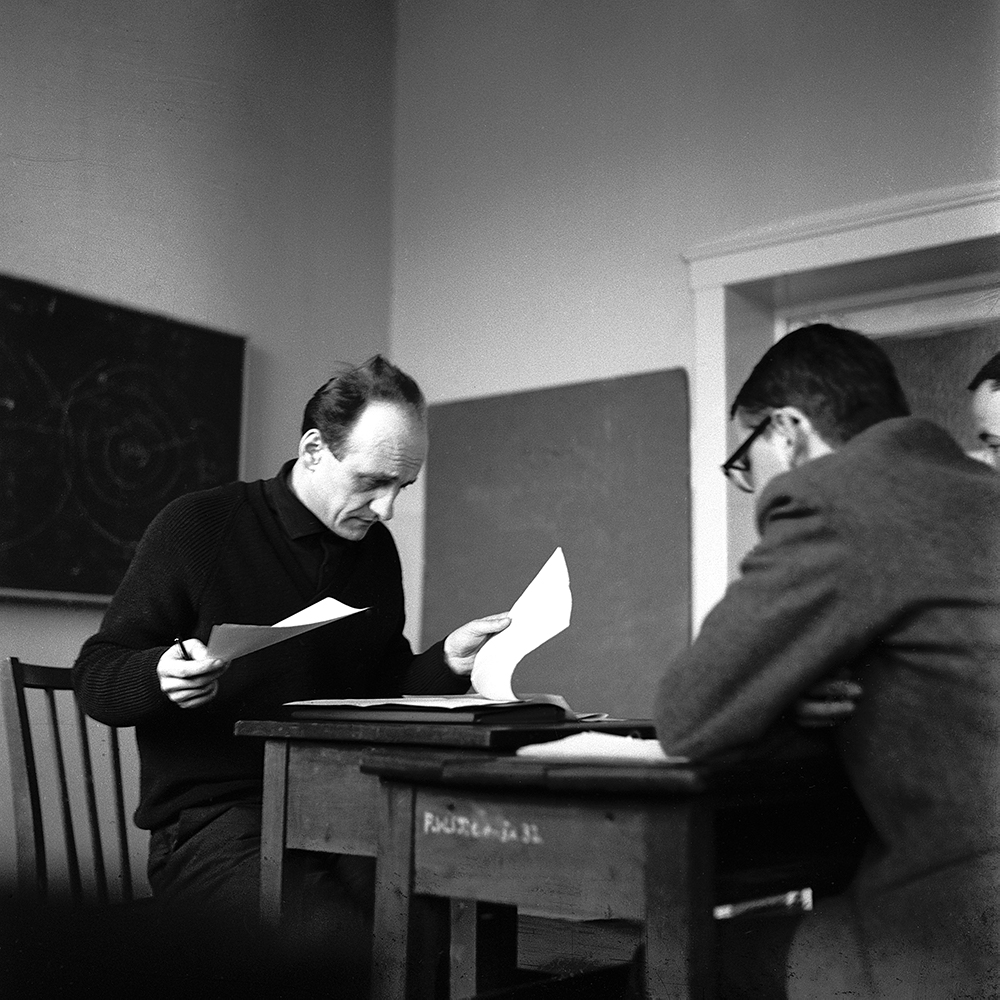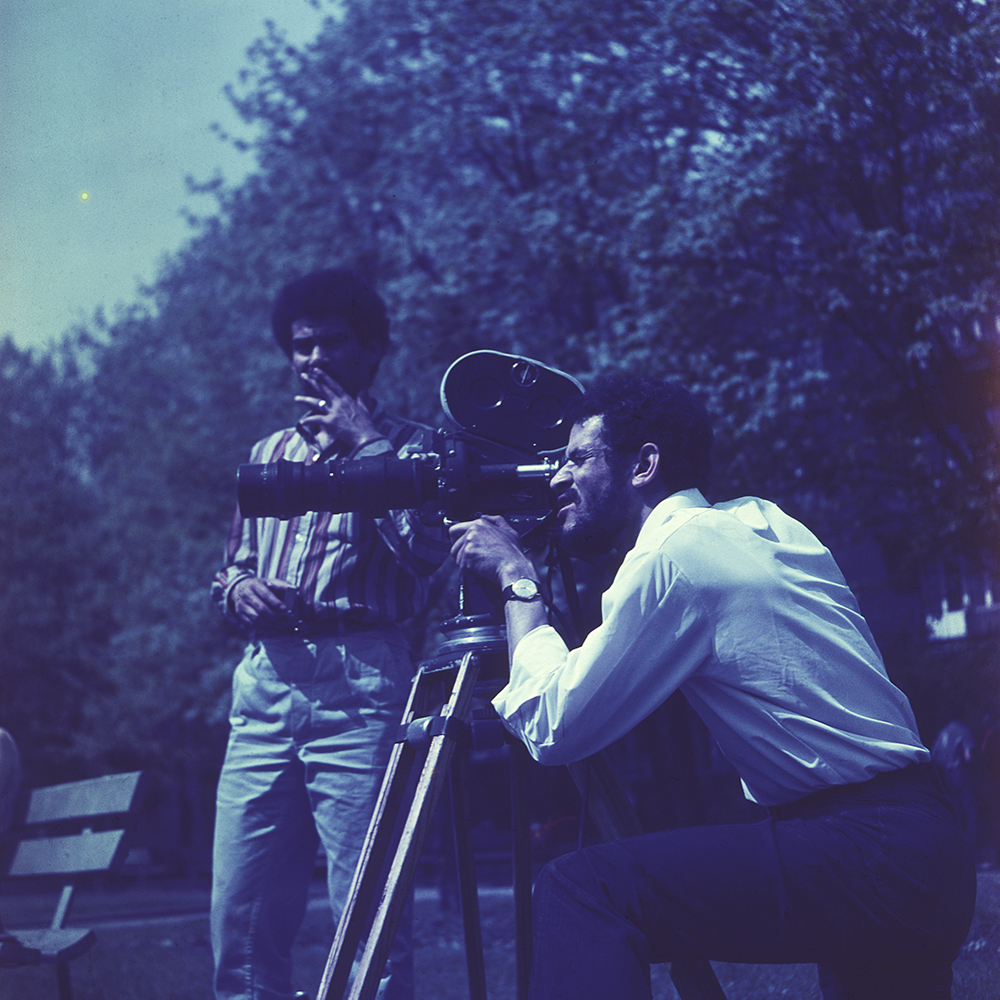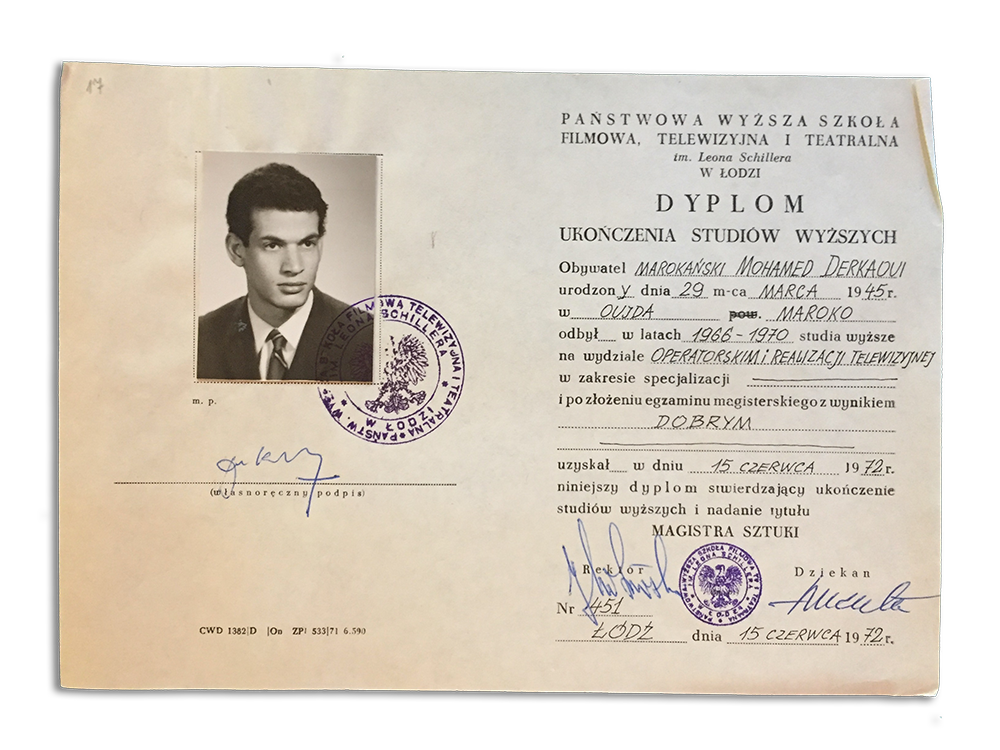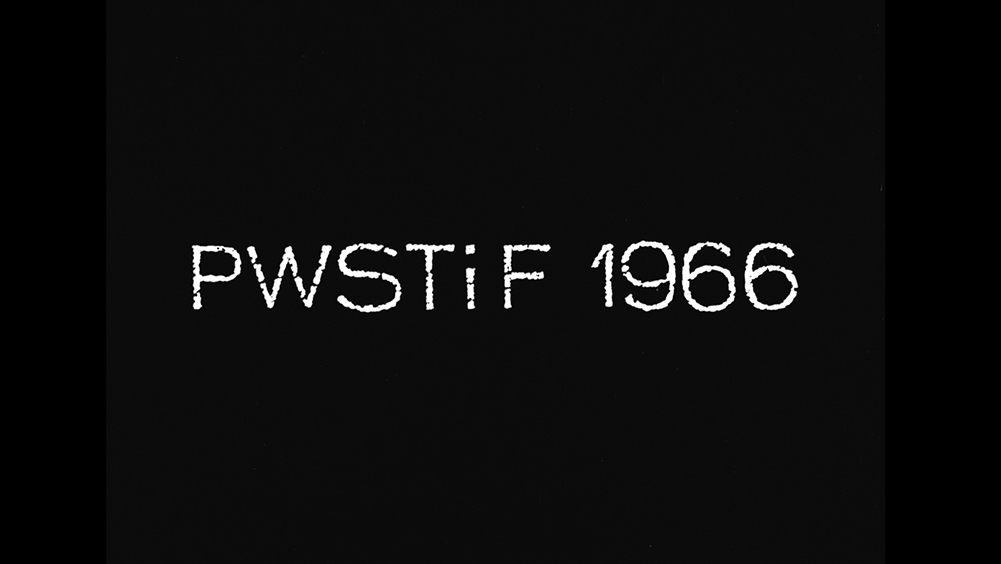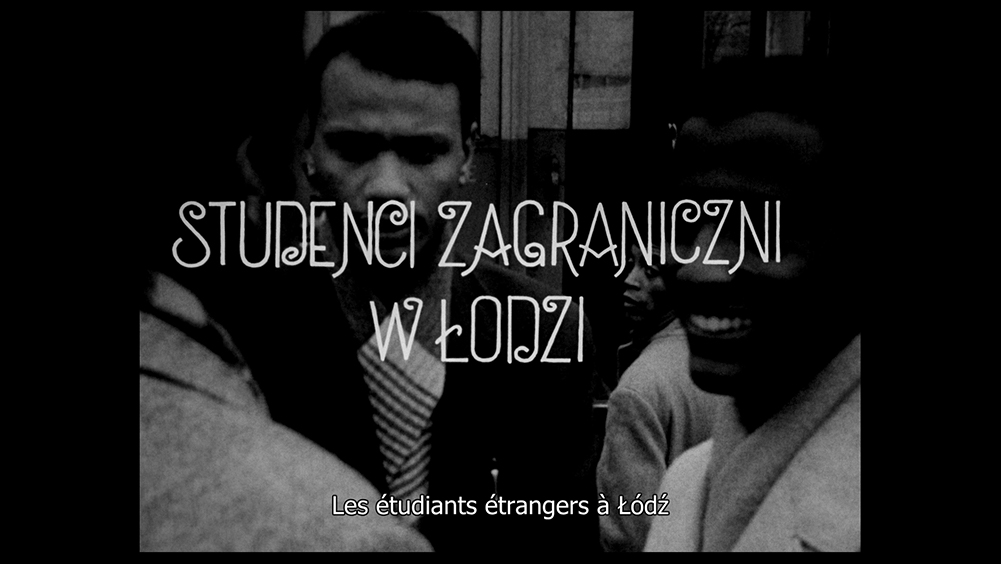
In class with the documentary filmmaker Kasimierz Karabasz, 1967, Abdelkrim Derkaoui
(1.3)
IN CLASS

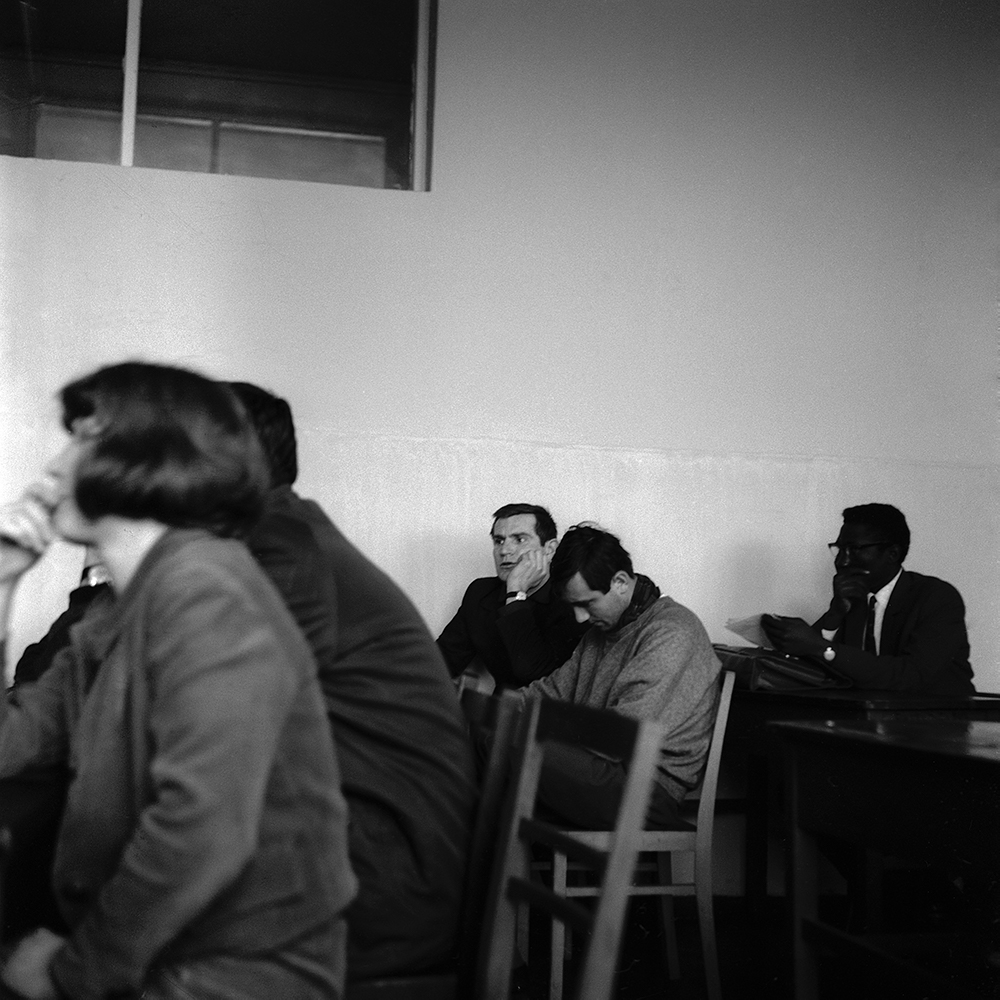



Photographs by Abdelkrim Derkaoui. Łódź, 1966-1972
With Kasimierz Karabasz, Józef Robakowski, Juliusz Janicki, Wéwiourka, and José-Maria Sanchez Ariza.
“The teaching had two distinctive features. Firstly, it wasn’t prescriptive: it was based on dialogue, with real directors teaching us. They got us thinking and tried to make us grasp all the possible styles; then they let us choose, depending on our projects. There weren’t any rules. We discussed films and concepts. Then, we would practice. They didn’t teach us how to write a screenplay. We’d tackle the task in a pragmatic way: they encouraged us to learn from our mistakes, to correct them little by little, to discover how to engage an audience, how to express an idea…”
“There were two cinemas at the school, one that showed films in the morning, and the other in the afternoon. The teachers and the students chose the films. The discussions took place afterwards, once we’d left the cinema. My main teacher for the first two years was the documentary maker Karabasz. We talked with him a lot about his films.”
Abdelkader Lagtaa, 2018
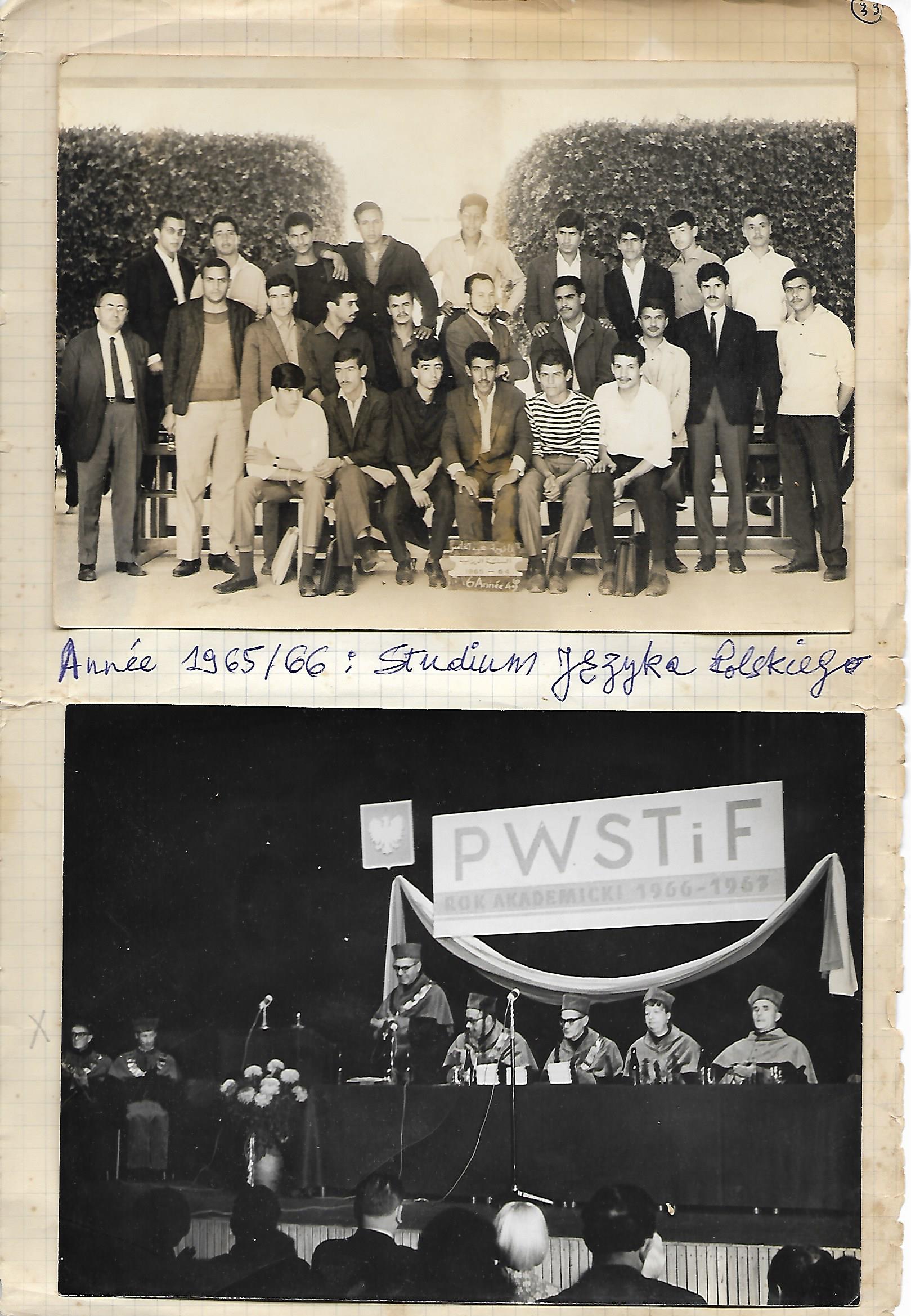
Abdelkrim Derkaoui’s notebook. Łódź, 1966-1972 (Top: The Tower of Babel / Bottom: at PWSTiF School)
“We have all kinds of classes in our first year: art history, literature, chemistry, physics, painting, descriptive geometry, aesthetics, film psychology, film history, film analysis, and more. There are seventeen specialities. It should be noted that every day, from 3 pm to 8 pm, there are film screenings. There’s an exam at the end of each semester.”
Ahmed Lallem, interviewed by Halim Chergui (alias Guy Hennebelle), El Moudjahid, 29 September 1965
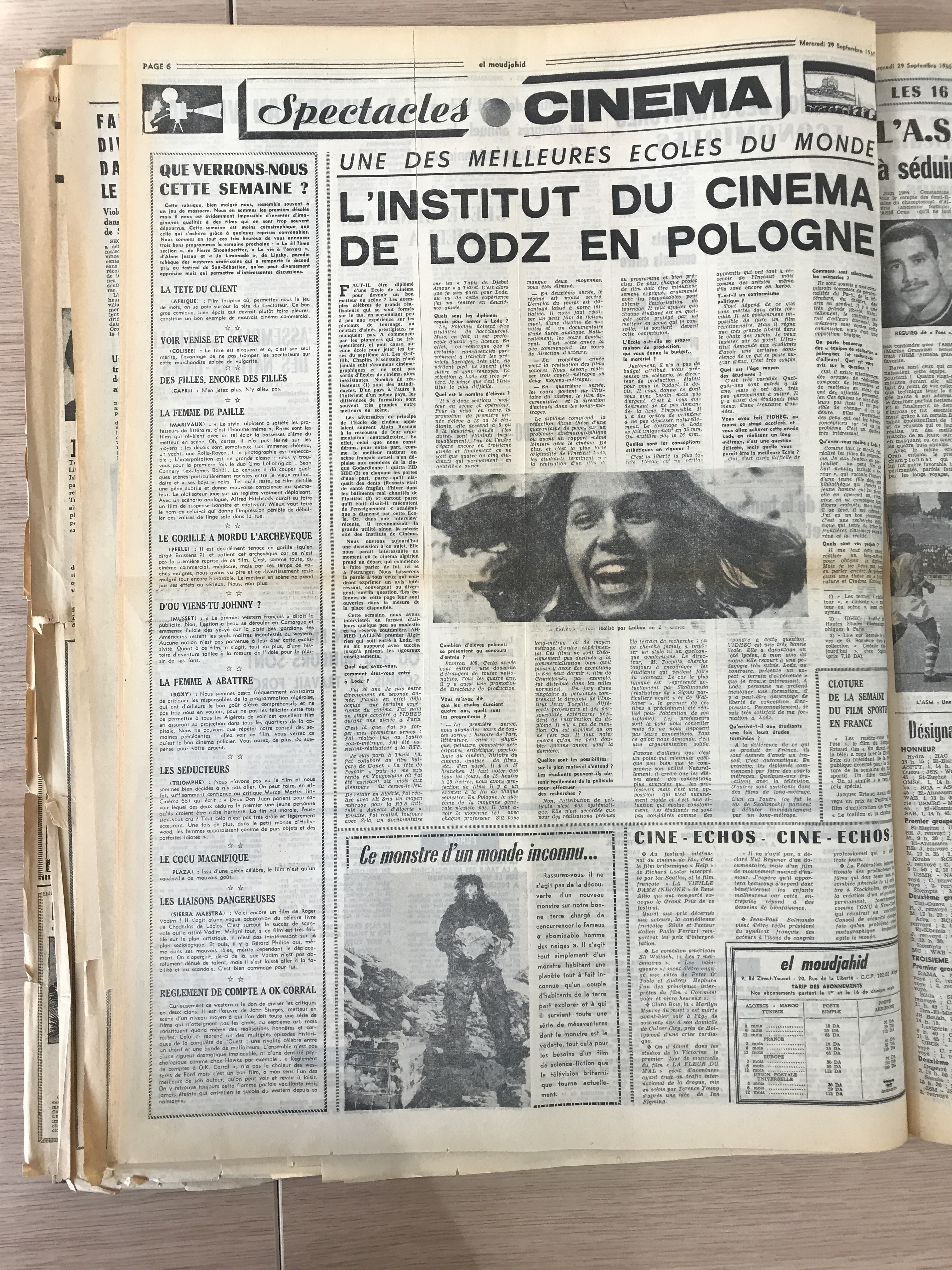
Ahmed Lallem, interviewed by Halim Chergui (alias Guy Hennebelle), El Moudjahid, 29 September 1965
(Algerian Cultural Centre Library Archives, Paris)
Ahmed Lallem (1940-2009) The Algerian filmmaker Ahmed Lallem worked as a war reporter at the borders for the FLN (National Liberation Front). He was sent by the FLN to gain work experience at Yugoslav Television in Belgrade, and also studied for a time at IDHEC in Paris. Lallem studied at the Łódź Film School from 1963 to 1966. He then made several documentaries, of which the most well-known are the short film Elles (1996), in which he gives voice to young women a few years after independence, and the feature film, Zone Interdite (1974).
A small note on the Algerians in Łódź. Whilst there were several Moroccans at the Łódź Film School in the 1960s and 1970s (seven students), there were only two Algerians: Ahmed Lallem and Djamel Bourtel. Ahmed Lallem did not finish his studies and there is no trace of his first student film, L’Erreur (see the photo in the article from El Moudjahid, above), nor even of his time at the school in its archives. Djamel Bourtel was very close to the Derkaoui brothers, and he appears in Karim Idriss’ final year film. Some ten students from the National Film Institute of Algiers were also granted scholarships to Łódź to specialise in television in 1965. They included the filmmakers Mohamed Ifticene and Sid Ali Fettar.
Copyright © 2020 / Léa Morin — CINIMA3 / Talitha
